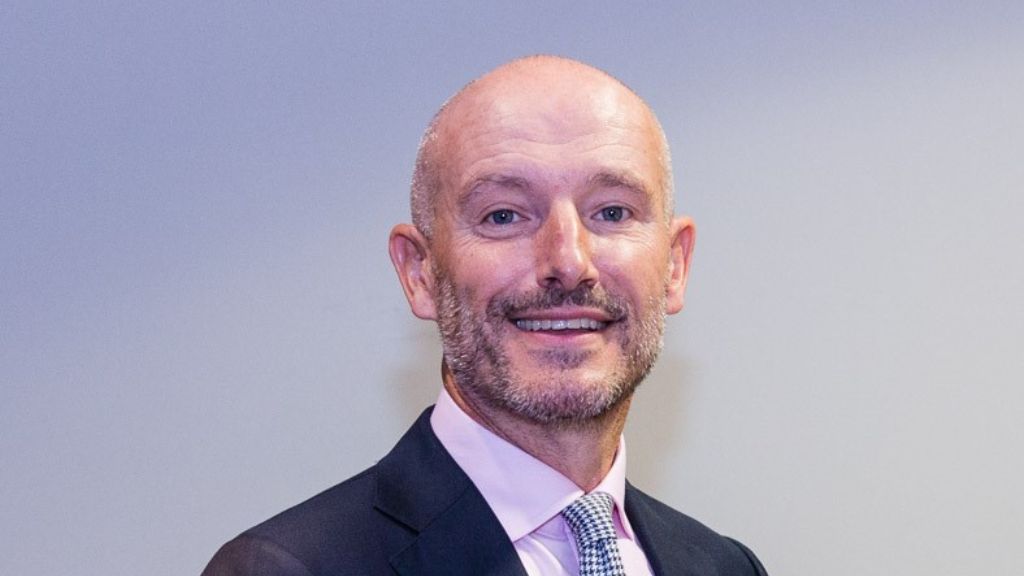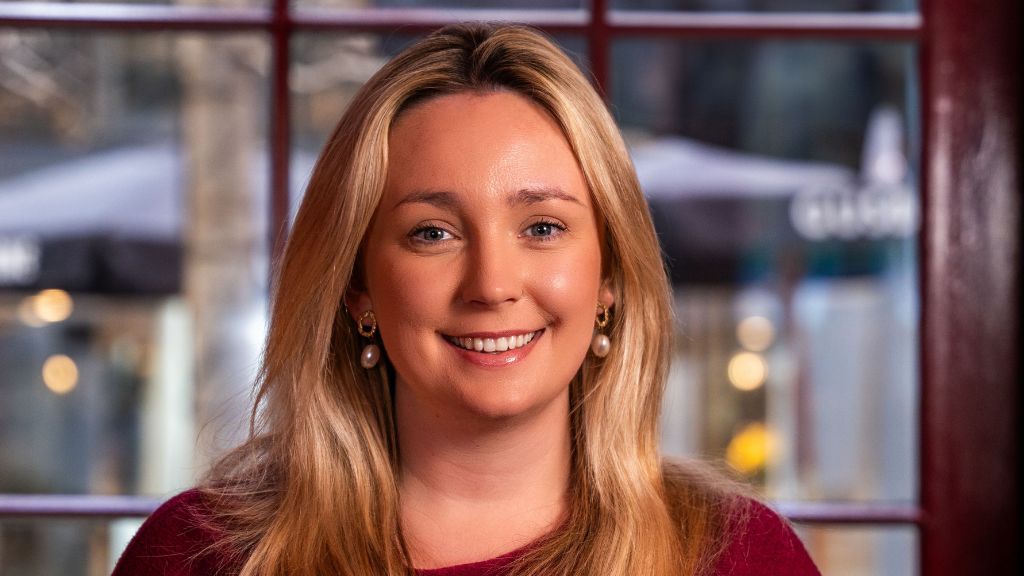EXCLUSIVE INTERVIEW: Care home CEO’s top requests from next government
Charlotte Goddard talks to the Orders of St John Care Trust’s (OSJCT) chief executive Dan Hayes about his top requests from the next government.

There are not many care providers that can lay claim to a history of care stretching back almost 1,000 years, but not-for-profit organisation The Orders of St John Care Trust (OSJCT) does just that. One of its sponsoring organisations, the Order of Malta, started out by providing a hospice for sick pilgrims in 1099. The other, the Venerable Order of St John, is the organisation behind St John’s Ambulance.
While the charity is rooted in history, chief executive Dan Hayes is in the mood to look forwards, not backwards. On the morning we meet, Labour leader Sir Keir Starmer has just revealed the six actions his party would prioritise if it wins the general election, with social care conspicuous by its absence.
“It isn’t a manifesto, but it is clearly the things they see as their most important messages, and the fact that social care is missing sends a message to everybody about the importance they attach to it,” says Hayes.
Hayes has been part of OSJCT for more than 20 years, joining in 2003 in a human resources role after spending some time working for the NHS. “I joined having only ever stepped inside one care home in my life, which bizarrely enough happened to be an OSJCT care home which my great aunt was living in,” he says. “I’ve been at the trust ever since. Wherever you are in the trust, whether you are a leader, or work in invoice processing or health and safety, you are so close to the delivery of the main service that you can see the impact you have.”

As well as being chief executive of OSJCT, Hayes is a board member of the National Care Forum (NCF), which last year announced its “social care must-haves” for the next government. These five proposed reforms are:
- Think social care first – Ensure that people care about social care like they do the NHS and understand its central role in joined up health and care.
- Improve the pay, terms and conditions of the workforce.
- Invest in people, not profit.
- Create an economic growth strategy for adult social care.
- Enshrine rights, fairness and choice for people in a National Care Covenant.
Hayes says that his own “social care asks” are broadly aligned with the membership body, which he sees as playing a vital role in the sector. The first 100 days is a key time for any incoming government, and while he admits his expectations are low, he would like to see an immediate commitment to social care.
“Make a commitment to return to the reform agenda, with a principle of a fairer, better-funded system,” he says. “The one thing that will make the NHS work a lot better, even better than pouring a load of money into it, would be to get social care working properly and fairly – the NHS would be strengthened as a result of that.”
Whichever party is governing after the next election, it needs to take a cross-party approach to social care, Hayes believes. “It’s a major fix that is required and that is only really going to be achieved by some sort of cross-party solution,” he says. “As a priority, any incoming government should say ‘let’s start to work together straightaway on a solution’, right at the beginning of the new government. Any fix is clearly going to spread over more than one electoral cycle, and other parties need to commit to not changing the foundations drastically.”

A new government can take some confidence in the public reaction to the temporary increase in the National Insurance Levy, which was raised by 1.25 percentage points in April 2022 to fund health and social care – even though this was then reversed in November 2022. “The first thing is to take some confidence from what’s happened in recent years,” he says. “In the last two years, the National Insurance Levy was raised to fund social care in the future and there were no riots on the streets. The only public pushback I saw was the fact that people didn’t trust it was going to be spent where the government said it was going to be spent. I hope that an incoming government sees that as a massive confidence boost that people will pay for a fairer system.”
However, since the publication of the adult social care reform White Paper ‘People at the Heart of Care’ in 2021, little has changed. “We were within touching distance of some moves that would have fundamentally improved social care but, three years later, it has just been forgotten,” he says. “I think we’ve got a good minister in Helen Whately, who is somebody that I think is committed to the sector, and there have been some good attempts at reform, but we end the term further behind than when we started it.”
Hayes is calling for a move away from “short-termism” in social care planning, with decisions based entirely on finances. “What we’re seeing as a provider are things like short-stay rehabilitative beds being pulled by the integrated care boards, not because it is the least used service – in fact it is probably the most beneficial service – but because it’s the easiest thing to pull,” he says.
While he believes well-delivered home care can be the best option for many people, he is cynical about a move away from rehabilitative beds in care homes and towards care in the home, believing it is motivated by finances rather than care quality. “If what’s happening is a genuine growth in high-quality care packages delivered at home, I think that’s fantastic,” he says. “But I think we’d all be cynical about a service that goes from being pretty substantial to almost nothing overnight. Have we really created a system that is providing loving, rehabilitative care for all those people who were with us yesterday? Are they all receiving that care in their own homes today to the same standards? It makes me slightly concerned about what might be going on behind the front doors of a percentage of those people.”
“We pay above the Real Living Wage, we give great sickness benefits and pensions, and this all comes at the cost of a sustainable surplus each year.”
The NCF’s social care ‘asks’ include “improve the pay, terms and conditions of the workforce”. As an employer committed to paying the Real Living Wage, this is something that Hayes is very much behind. “Labour has been talking about a new deal for workers, with an initial focus on social care,” he says. Labour has said it will establish a Fair Pay Agreement in adult social care to improve terms and conditions across the sector.
“In my humble opinion nobody is more deserving of a better deal than social care workers,” says Hayes. “I think the majority of employers want to give that better deal and are only held back by the current funding model. We pay above the Real Living Wage, we give great sickness benefits and pensions, and this all comes at the cost of a sustainable surplus each year.”
With many care workers held back by lack of qualifications, Hayes would like to see a new emphasis on the value of experience within the sector, enabling practitioners to progress into roles in nursing and social work. “Often the barrier is the GCSEs and A-levels required,” he says. “It is important to recognise that lots of people in social care haven’t had a great academic experience, but the experience they have gained while working in social care is invaluable. Let’s continue to work to recognise that as a route into these other professions. You can say social care is then losing people to other professions, but actually you are creating a career pathway in the sector – and the people who then occupy those professions will have a wholly different regard for social care, as it is where they came from. That will change the status of the sector over time.”

Under Hayes’ leadership the OSJCT has gone from strength to strength. In February the organisation merged with charity The Fremantle Trust, gaining facilities including 11 care homes for older people and residential and supported living services for people with learning disabilities. In March it acquired private provider Elmfield Care which offers residential, dementia and respite care for around 200 residents across three purpose-built luxury care homes in Wiltshire and Gloucestershire.
While some not-for-profit providers, such as Anchor, have acquired private companies, this is the first such move for the OSJCT. The acquisition will support the charity’s sustainability, as well as providing a source of best practice that can be rolled out across OSJCT’s homes, says Hayes.
“Charities and not-for-profit organisations rely very much on people that pay for their own care to be sustainable – none of us would be here without cross-subsidy,” says Hayes. “As a group we have had a strategy for a long time to increase the number of people who fund their own care within the trust. More recently we have developed self-funded services with a higher degree of discretionary choice within them.”
Elmfield’s value base is a good fit with OSJCT, says Hayes. “The acquisition does strengthen our financial performance, which is better for everybody, but more than that that, we’ve bought into practices that we can apply across the rest of the organisation that make us better,” he states. “For example, the way they use their digital platforms, and the integration of their enquiry management services.”
While the OSJCT’s two sponsoring orders have a Christian background, the organisation is entirely secular on a day-to-day basis. However, there is an emphasis on transparency, and on the provision of loving care. “I genuinely consider myself as one of the most fortunate chief executives out there, because the only thing that the sponsoring orders challenge me and my colleagues to deliver is loving care to anybody that needs it, that comes across our threshold,” says Hayes. “And that’s what we endeavour to do.”




